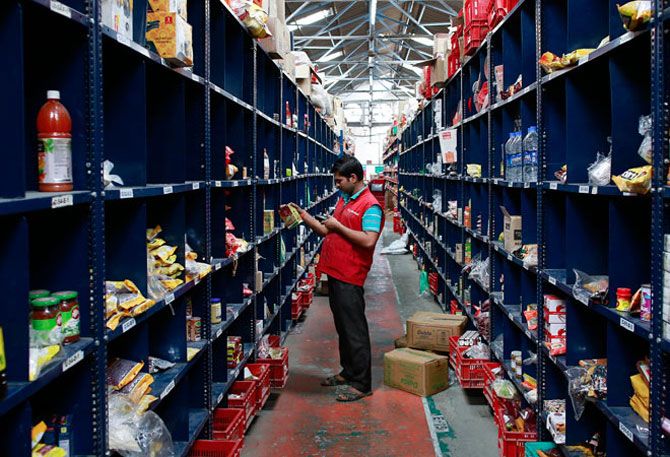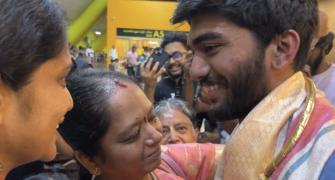Globally, the viability of on-demand businesses is being questioned

On Friday, PepperTap CEO Navneet Singh stood in front of his employees and told them that the PepperTap experiment had ended. Some of the employees knew it was coming. Several in leadership positions had been shopping for jobs. A few had already approached BigBasket and Grofers.
The shuttering of PepperTap had been in the works for a few months. The company had given out appraisal letters to employees promising them salary hikes. These hikes meant that when they went out in the market they could bargain from a position of strength. But there was a catch.
“We were asked to resign en masse. And also we would be paid the new raised salary only for 22 days,” said a former employee. As many as 150 out of 200 employees got this deal. A few of those who resigned said this was more to save face later when operations ceased on April 30.
“A select few who knew what was happening were told that they would be absorbed into Nuvoex,” said an employee who was in a leadership position. “Cosmetically, it would appear at the end of the month that most people were absorbed and there were very few layoffs. But that is not true.” The delivery personnel were on contract and their services will be terminated.
The closure doesn’t hurt just the employees. It hurts Nuvoex as well. Snapdeal has been Nuvoex’s biggest customer and that relationship triggered a $35 million investment last year. But Snapdeal, after Amazon launched Fresh, had been hoping that PepperTap would help it monetise the segment.
“Snapdeal wasn’t happy with the shuttering, especially now. The relationship was strained. The proof was that Snapdeal’s orders through Nuvoex were also dropping,” said another source. Singh, however, rubbished such claims and said that Nuvoex’s relationship with PepperTap was intact.
The empire started to crumble, in a manner of speaking, in May 2015. PepperTap had at the time decided on a very conservative growth plan. It had planned to expand to three cities in one quarter from its home base in Delhi. The mandate was simple: establish relationships with high-profile retailers and convince them to get on the platform. Each city growth plan was carefully calibrated.
But investors, people in the know said, were getting itchy. They saw Grofers accelerate into different geographies and wanted PepperTap to keep pace. “Overnight, the plan changed. We were told to focus on aggregation and fulfilment. We had to be faster than Grofers,” said a former employee.
The focus, the employee said, shifted from margins to cities. PepperTap was now targeting six cities in the quarter and 25 in seven months. “We were asked to go all out and get hypermarkets on board even if it meant PepperTap got no commission in the beginning,” the employee said.
PepperTap, which so far had not been discounting heavily, got into that game as well. Industry experts said discounts in the grocery business ranged from two per cent for consumer goods to 20 per cent for vegetables and fruits. “The reason BigBasket can give you deeper discounts on perishables is because they source from wholesalers and stock inventory.
They don’t go through retailers. Every bit of money they make is their own,” said the co-founder of a company that recently pivoted away from the grocery delivery business. He explained that, on average, in the retail-sourcing model that PepperTap followed, the commission was about 20 per cent. And then add discounts and logistics fees.
Let’s assume, for argument’s sake, the cost of your order is Rs 100. The commission on it is Rs 20. Sources said in the worst case scenario, PepperTap’s logistics cost was 35 per cent of the order value. But that is at its worst. On average it was 17 per cent. So, Rs 17 is the logistics cost.
It also needs to compete with BigBasket and offer discounts upwards of 20 per cent. Retailers refuse discounts and ask aggregators to offer discounts from their own pockets. It means PepperTap made a Rs 17 loss in the best case scenario and Rs 35 in the worst. “Now, extrapolate that into the number of orders they had and you can see how they burnt cash,” said the co-founder.
But this is a problem most hyperlocal players face. “You have to remember they didn’t take commission from plenty of hypermarkets. So there was no commission to offset costs for two or three, sometimes, even four months,” said a source. The only way to get a handle is to charge for delivery, which is something no player is ready to risk. “We didn’t want to charge for delivery because some customers may not want to pay,” Singh said.
Even globally, the viability of on-demand businesses is being questioned. Instacart, an on-demand grocery delivery service in the US around which Grofers, PepperTap and BigBasket are modeled, has increased its costs up to $10 per delivery.
The incessant discounts and marketing meant PepperTap’s orders soared. At its peak in November the company’s orders per day touched 30,000. It was beating its competitors hands down. But others advertised as well. And the orders started dropping.
In April, the number of orders was down to 1,100 a day and 500 from Delhi. Its average ticket price was around Rs 650. In comparison, industry experts estimate that Bigbasket handles 10,000 orders a day with an average ticket price of Rs 1,600 and Grofers 8,000 orders at an average ticket price of over Rs 1,000.
PepperTap had asked its investors for more money but none was on offer. Sources said Sequoia Capital had placed its eggs in the Grofers basket. The writing was on the wall. Singh privately told employees that the traction the company had during Diwali was all but lost. They had failed in the money-raising game and with BigBasket running the segment the company was forced to call it a day.
Rise and fall
Nov 2013
PepperTap founded
March 2015
Raises $1.8 million in seed funding from Sequoia Capital
April 2015
Raises $10 mn in Series A funding from Saif Capital and Sequoia
September 2015
Raises $36 mn Series B funding in a round led by Snapdeal
November 2015
Expands to 15 cities
December 2015
Raises $4 mn in venture debt from InnoVen Capital; acquires JiffStore in Cash and stock deal
Feb 2016
Shuts down operations in six cities
April 2016
Shuts down all operations
Photograph: Reuters










